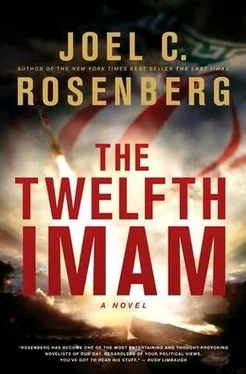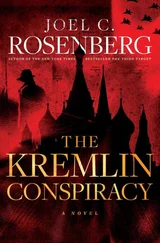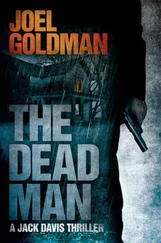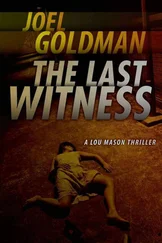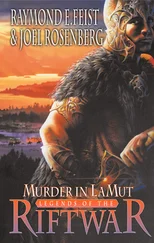“I’m not upset with you, Marseille. I just… I can’t believe you’ve gone through all this alone. I wish I could have helped you somehow.”
“Thank you. That means a lot. But I don’t expect you to forgive me so easily. It wasn’t right to keep you in the dark. You must have been hurting too, wondering why I wouldn’t respond. But you are very kind.”
Some light seemed to return to her eyes. He was still puzzled by a lot, but at least he could understand now why she had cut off all contact. She had to because her father had lumped him and his family into the growing list of Iranians who had supposedly poisoned his life. But he wondered what Marseille wanted from him now. Just to reconnect? to be forgiven?
The food arrived, but he couldn’t eat, and neither could she.
“Is there any way I can help you now, Marseille? Is there anything you need?”
She was quiet for a while, picking at her food. “When Dad died, it took me a while to go through his things,” she said at last. “His office was a disaster, and I was tempted to just gather it all up and take it to the trash heap. But I knew somehow that I should go through everything slowly and read carefully. There was so much about my parents that I didn’t know. Dad never spoke about my mom after 9/11, and I never even got the chance to tell him what I’d learned from you about their escape from Iran with your parents.”
David noticed she still hadn’t told him how her father had died, though he certainly didn’t blame her.
Marseille reached into her bag and pulled out an envelope, unwrapping the string around it and setting it on the table. “My dad kept journals-did I ever tell you that? He wrote a lot of journals over the years. Even though there were large gaps over time, I learned a lot. My parents were pack rats, and their files went back into the sixties. Look, this is a medical record from their time in Iran. See, it’s issued from the Canadian Embassy. My mom miscarried their first child during the Revolution.”
“I never knew that,” David said.
“The records are incomplete, but I think she was badly injured before they escaped. It doesn’t seem like it was a normal miscarriage. I think that’s why they never wanted to tell me about Iran. It was too painful for them.”
David remembered the quiet, normal home on the Jersey Shore that he had visited so long ago. What a difference it must have seemed to the Harpers from the craziness of Tehran.
“It makes sense now,” she continued. “That’s why they stayed at the Canadian Embassy so long. It wasn’t just to come up with an escape plan. My mom had to heal enough to travel. I wish I could have talked to them about it all. I wish I could hug my mother. I feel like, in some ways, I never really knew them. You know?”
Marseille looked so wistful and seemed so fragile; David wanted to hold her, to protect her. But he had no right to do it. And anyway, he couldn’t go back to those days when life was normal. Things weren’t normal anymore. Not for him. And soon, maybe not for anyone. Right now, here in this place with Marseille, he could almost forget what his task really was. Then she interrupted his thoughts, and he realized he’d been silent for too long.
“David? Are you okay? This is strange, isn’t it? My just showing up and dumping all this information on you. I’m sorry. It’s just that my friend insisted I come here to be in her wedding. It’s so… I don’t know, random that she grew up near Syracuse. I couldn’t imagine coming to your hometown without looking for you. And with my father’s death and everything I’ve been reading in his files… I just… needed to see you.”
“I’m glad,” he said. “I’ve thought about you often, even when I didn’t want to. I always wished things had turned out differently between us. But I thought it was all gone. Those few days were so amazing, and then everything just caved in. I went home, back here, back to high school, and you were gone, and the world was a different place. It’s never been the same again.”
“I know,” she answered quietly. Now it was her turn to seem lost in her thoughts, lost in old memories.
David wasn’t sure what else to say or where to go from here. Their food was cold, and it was almost time for her to go. But he didn’t want her to leave. He wanted to find a way to ask her to stay longer in Syracuse. He wanted to pick up where they had left off and pretend everything that had happened in between hadn’t happened at all. He wanted to forget Iran, forget MDS, forget Eva Fischer and Jack Zalinsky, forget Esfahani and the Twelfth Imam and the threat of world war. He wanted to call his mother and tell her he was ready to settle down, stay in central New York, marry Marseille, and give her some grandchildren. She’d be thrilled. Maybe it would give her a new reason to fight for life and survive. Was it all so impossible?
Suddenly Marseille came back from her daydream and interrupted his. “David?”
“Yes?”
“There’s one other thing I wanted to tell you about my father. I guess it’s okay to tell you. I haven’t said anything to anyone about it yet, and somehow it seems like you’re the only one in the world who might care.”
“What is it?” David asked. He was half-listening and half desperately scrambling to come up with a way to run off with her. Would she go with him if he asked?
“I always thought my dad worked for the State Department-you know, a political analyst or whatever. He spoke Farsi, and I thought he translated and analyzed news reports for our government. But I found something in his papers that makes me believe he never worked for the State Department at all. I don’t even think my mom knew. David, he was in the CIA all along. Look at this.”
She moved her chair next to his and showed him a document on CIA stationery. It was a letter of commendation for Charles Harper for valor under fire in Iran. It mentioned the crisis of 1979 and thanked him for his crucial work for the Agency. And it was signed, Tom Murray, Director of the Near East Division.
“Wow, this is really something,” David said.
“It is, isn’t it?” Marseille said. “It’s been so long, and now that he’s gone, I suppose it’s okay for people to know. Nobody back in Oregon ever really knew my dad. There’s no one to share this with. But you knew him. Your family was part of our past-a crucial part-which is why I wanted to tell you. I don’t know if he continued with the CIA when he came to the States. I find myself trying to remember long trips he took when I was growing up. ‘Research trips,’ he called them. I thought they were for his books and lectures at the college. I just wonder what my dad’s life was really like.”
David wondered too, intrigued by this striking new connection between the two of them and feeling terrible that he couldn’t tell her what he was doing and why. But at that moment, his phone buzzed in his pocket. He pulled it out and recognized Zalinsky’s number on the caller ID.
“Sorry; it’s my boss,” he said and took the call. “Hey, it’s me. Can I call you right back? I’m in the middle of something.”
Zalinsky’s voice was somber. “David, you need to get somewhere private and call me in the next five minutes. Do you understand?”
“Absolutely. I will.”
David clicked the phone off and glanced apologetically at Marseille. He hated to lie to her, but he had no choice. “That was my boss; things are not good. I’m afraid I have to go.”
“Seems like a very stressful job.” She smiled. “I think I’ll stick to my first graders.”
“Yeah, well, it’s not always like this. It’s just a particularly urgent moment for us. I can’t believe the timing of all this.” David ran his fingers through his hair in frustration. “Marseille, I’m going to take a risk here. I want you to know that I’d like nothing more than to sit here with you for hours, take a long walk with you, even fly back to Oregon with you, for that matter. I don’t want to be cut off from you again. I’m not sure how to even put it into the right words. But believe me, I’m going to wrap up this business in Europe and then, if it’s okay with you, I’d like to come to wherever you are. There’s so much more to talk about, wouldn’t you say?”
Читать дальше
